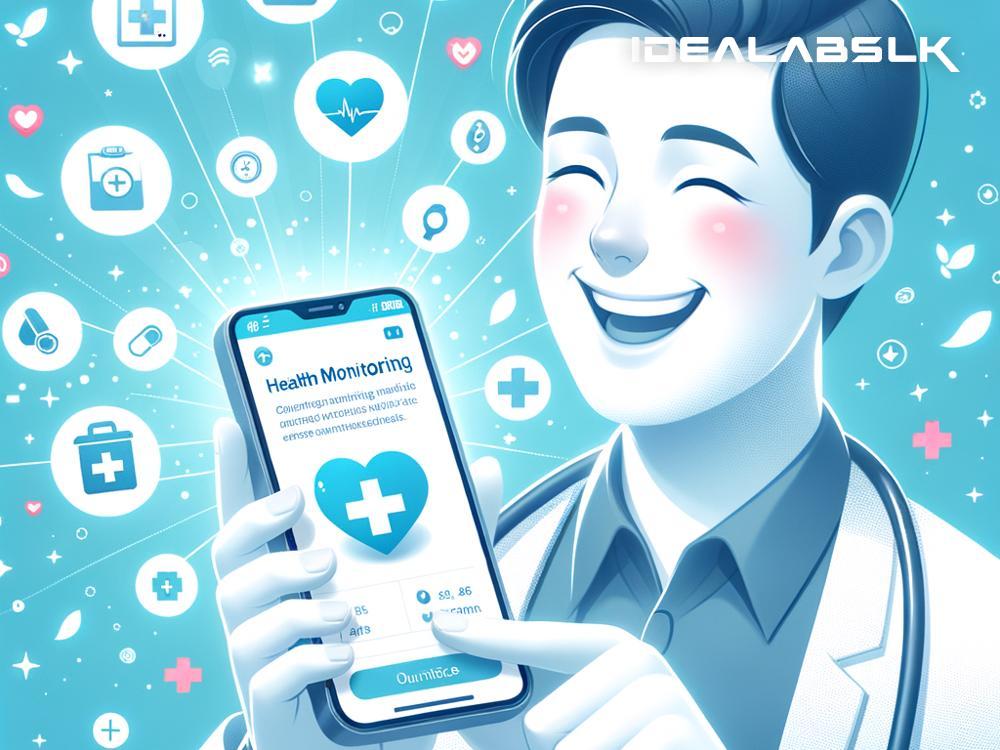How Mobile Health Apps are Revolutionizing Healthcare: Easy Access to Care Anytime, Anywhere
In today's fast-paced world, healthcare is at our fingertips, literally! With the advent of mobile health apps, accessing healthcare services has become easier, faster, and more convenient than ever before. These digital tools are not just changing the way we seek medical advice and monitor our health but are also significantly reducing the burden on healthcare systems worldwide. Let's dive into how this revolutionary change is happening, step by step.
What are Mobile Health Apps?
Before we get into the heart of the matter, let's clarify what we mean by mobile health apps. These are applications you can download on your smartphone or tablet that help you manage your health and well-being. They can range from simple fitness trackers and diet logs to more complex applications that allow you to consult with healthcare professionals via video calls, manage chronic conditions, or even remind you to take your medication.
Making Healthcare Accessible to All
One of the most significant benefits of mobile health apps is their ability to make healthcare accessible to virtually everyone. Whether you're in a bustling city or a remote village, if you have a smartphone and an internet connection, you can access a wealth of healthcare services. This is particularly life-changing for people in rural or underserved areas, where healthcare facilities might be sparse or non-existent.
Reducing the Strain on Healthcare Facilities
Emergency rooms and clinics often get crowded with people seeking help for non-emergency health issues. Mobile health apps can reduce this congestion by offering an alternative for minor ailments or questions that don't require immediate, in-person attention. By handling these cases digitally, hospitals can focus more on emergencies and critical care, improving overall healthcare delivery.
Empowering Patients
Knowledge is power, especially when it comes to managing your health. Mobile health apps empower users by giving them access to a wealth of information about their conditions, medications, and treatments. They also provide tools for tracking symptoms, medication schedules, and even progress in physical therapy, enabling patients to take an active role in their own healthcare. This self-management aspect can lead to better health outcomes and reduce the need for frequent doctor visits or hospitalizations.
Preventive Care at Your Fingertips
Prevention is better than cure, and mobile health apps are champions of preventive care. Many apps focus on lifestyle management, helping users to adopt healthier habits, such as regular exercise, a balanced diet, and enough sleep. By promoting preventive care, these apps can decrease the incidence of chronic diseases like diabetes and heart conditions, which, in turn, reduces the long-term burden on healthcare systems.
Seamless Communication Between Patients and Healthcare Providers
Gone are the days of waiting weeks for a doctor's appointment or traveling long distances for a consultation. Mobile health apps facilitate seamless communication between patients and healthcare providers. Through these apps, you can have video consultations, send messages, and share health data with your doctor in real-time. This not only saves time and costs but also ensures that you can receive medical advice and prescriptions without leaving your home.
Data Management and Research
Mobile health apps collect a vast amount of health data from their users, which can be invaluable for medical research and public health monitoring. With proper consent, this data can help researchers identify health trends, track disease outbreaks, and develop more effective treatments. For healthcare systems, this means more efficient resource allocation and better preparedness for health crises.
The Future is Now
The revolution brought about by mobile health apps is just beginning. As technology continues to advance, we can expect these apps to become even more integrated into our lives and healthcare systems. They hold the promise of not just reducing the burden on healthcare facilities but also of making healthcare more personalized, efficient, and accessible to everyone, everywhere.
In conclusion, the impact of mobile health apps on reducing the burden on healthcare systems is profound. By facilitating access to care on the go, empowering patients, and promoting preventive care, these digital tools are paving the way for a future where healthcare is more about wellness and less about sickness. As we continue to embrace these technologies, the possibilities for improving global health outcomes are endless.

